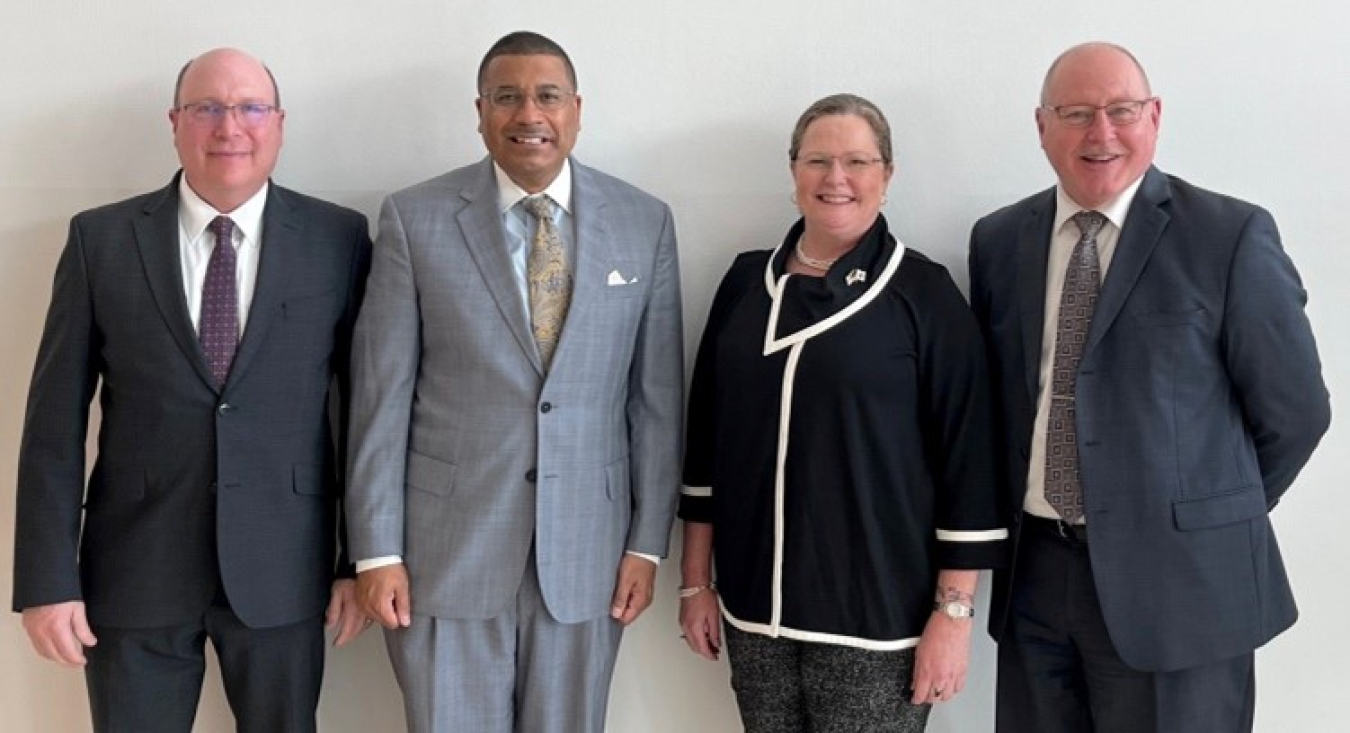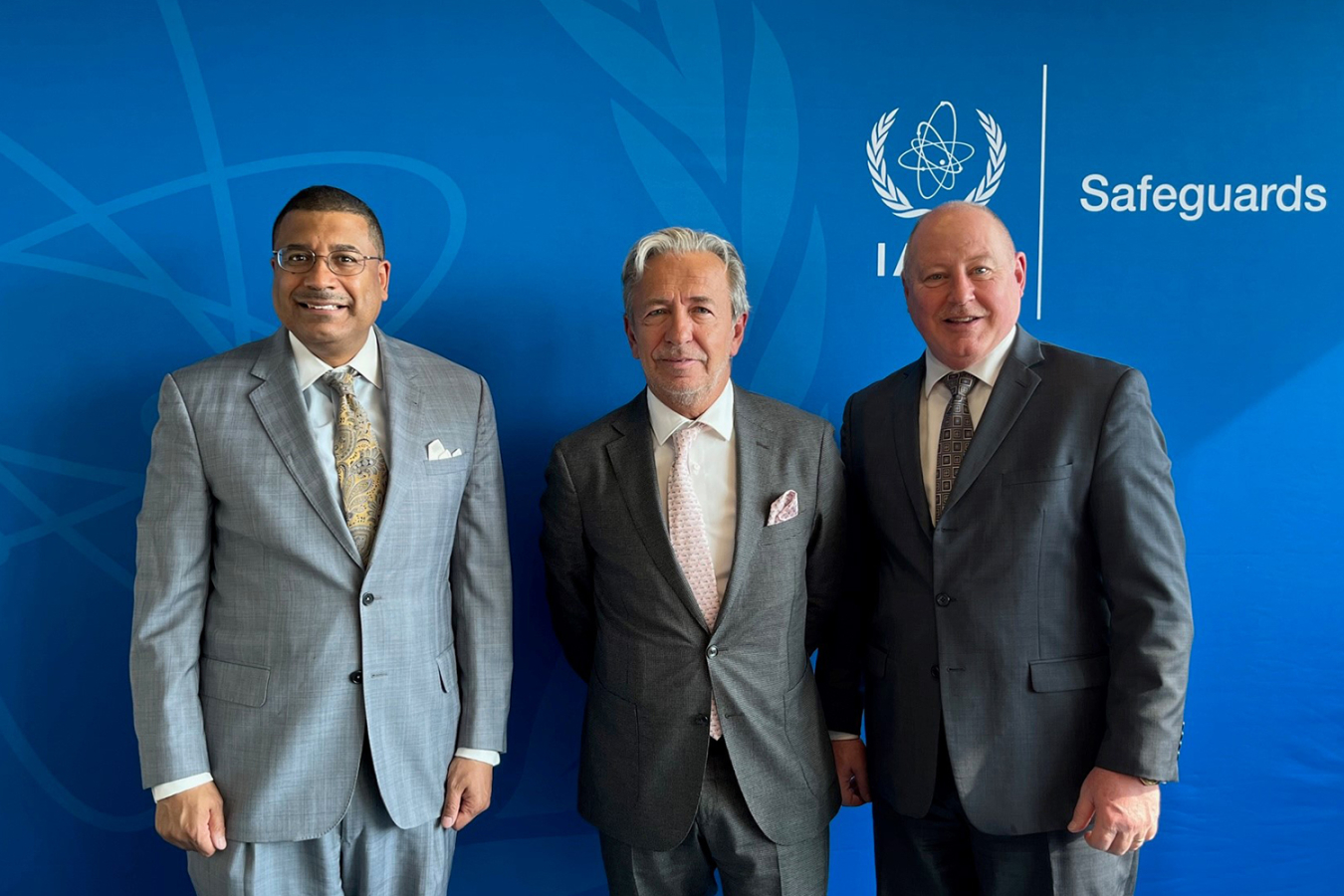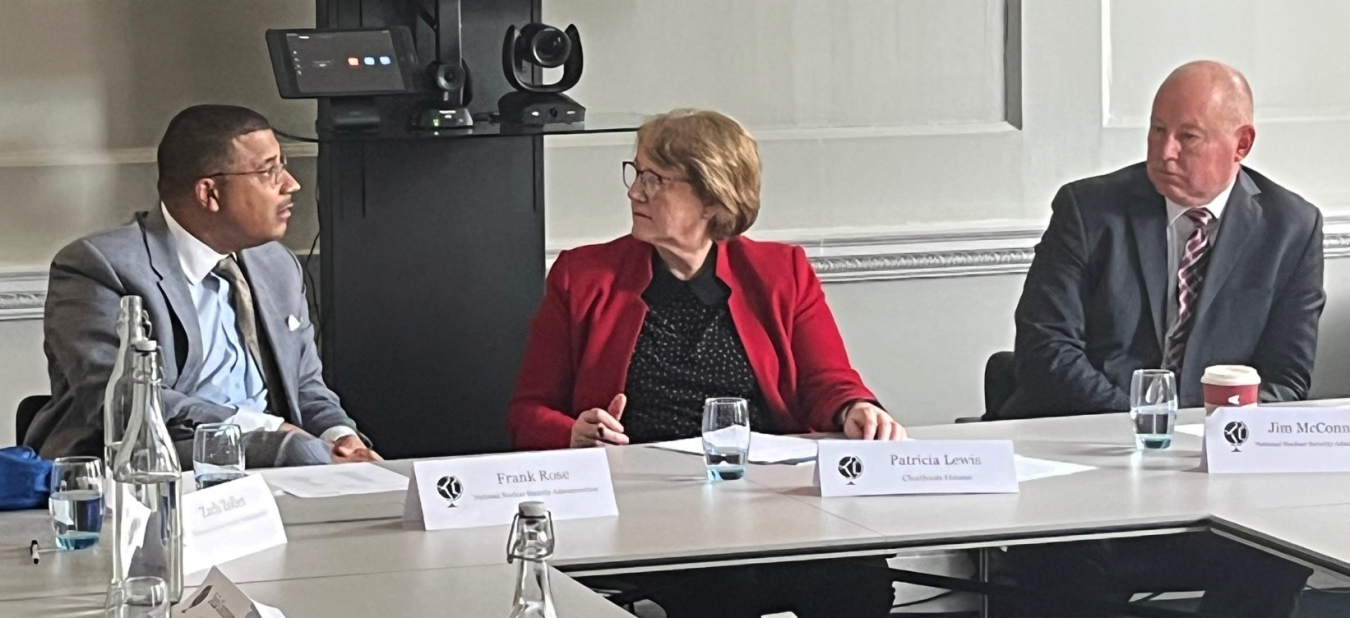Last month, Principal Deputy Administrator Frank Rose and Associate Principal Deputy Administrator James McConnell, visited organizations in Austria and partners in the United Kingdom to discuss ongoing joint efforts and explore new areas of cooperation.
National Nuclear Security Administration
May 17, 2023
Last month, two senior leaders from NNSA, Principal Deputy Administrator Frank Rose and Associate Principal Deputy Administrator James McConnell, visited international organizations in Austria and allies and partners in the United Kingdom to discuss ongoing joint efforts and explore new areas of cooperation.

“NNSA has partners throughout the world in the nonproliferation, nuclear security, and arms control realms,” Rose said. “We always want to emphasize how important these partnerships are to us.”
The team first visited Vienna, where they met with representatives from several international organizations based there.
During a visit to the U.S. Mission to International Organizations in Vienna (UNVIE), Rose and McConnell met with Ambassador Laura Holgate and mission staffers. The past year has been busy for the UNVIE team as it has dealt with the heated diplomatic atmosphere resulting from Russia’s brutal and unprovoked invasion of Ukraine and occupation of the Zaporizhzhya Nuclear Power Plant (ZNPP). The leaders discussed UNVIE’s and NNSA’s complementary priorities, including how to continue supporting one another.

At the International Atomic Energy Agency (IAEA), Rose and McConnell met with leaders from the departments of Safety and Security; Management; and Safeguards. The major topic of discussion was the situation at ZNPP, where a rotating, 24-hour IAEA team is monitoring events, and how NNSA can continue and expand support to the Agency for this challenging role. Also discussed was small modular reactor nuclear safeguards and security and how the IAEA can learn from NNSA’s experience with taking action to detect, identify, track, and mitigate potentially malicious drones and unmanned aerial vehicles over sensitive facilities.
A key issue at the IAEA is recruitment and achieving gender parity within its ranks, issues which Director General Raphael Grossi has defined goals for, in order to track their progress. Rose and McConnell offered their perspectives based on similar, successful, initiatives at NNSA.

“We salute DG Grossi for setting this challenging goal in the nuclear security sector. NNSA has faced challenging recruitment issues ourselves,” McConnell said. “By consistent engagement with our staff, and learning about both their goals and concerns, we have become a more diverse, stronger organization. It’s an ongoing worthwhile effort.”
Rose and McConnell also met with Dr. Robert Floyd, head of the Preparatory Commission for the Comprehensive Nuclear-Test-Ban Treaty Organization (CTBTO PrepCom). NNSA and other U.S. Government organizations cooperate extensively with the CTBTO PrepCom to maintain and improve its worldwide monitoring network, which helps detect if certain events are – or are not – nuclear explosive tests. It’s a key international nonproliferation capability.
Following their visit to Vienna, the two leaders flew to the United Kingdom, where one highlight of the trip was a visit to the Capenhurst Nuclear facility near Manchester. The facility, run by Urenco, is a uranium enrichment facility that supplies nuclear power plants throughout the world with enriched material for fuel. Rose and McConnell discussed with the company’s management how Russia’s war with Ukraine had increased work volume there. NNSA’s leaders also discussed a future international nuclear nonproliferation testing and training center that will help the IAEA and international community grow their expertise in nuclear safeguards.

In London, Rose and McConnell met with senior leaders at the Defence Nuclear Organisation, the Ministry of Defence (MOD) agency that oversees the U.K.’s nuclear enterprise. Later, the leaders discussed with their MOD colleagues topics including AUKUS, which includes NNSA equities in naval nuclear propulsion, and the U.S.-U.K. Mutual Defense Agreement, a cornerstone treaty dating back to 1958 that defines the nuclear weapon aspects of the special relationship.
Rose and McConnell met with leaders of the U.K. Department for Energy Security & Net Zero, which, like NNSA, is responsible for the country’s efforts in nonproliferation and counterproliferation. They discussed how the organizations are staying aligned with regard to the war in Ukraine , but also touched on small modular reactor safeguards and international partnerships such as the International Partnership for Nuclear Disarmament Verification and Quad Nuclear Verification Partnership a nuclear disarmament verification partnership bringing together non-nuclear weapon states with two nuclear weapon states with a common goal.

In addition to their engagements with government officials, Rose and McConnell also had the chance to engage with non-governmental experts at the Vienna Center for Nonproliferation and Disarmament and the Royal Institute for International Affairs in London about NNSA’s roles, missions, and key priorities.
“Maintaining and developing our relationships in nuclear security is the most important thing we can do,” Rose said upon his return to the United States. “I learned a lot about some of the specific work we do with our U.K. and international partners and I’m confident they did too. Stronger ties keep us together when we’re faced with common threats.”

